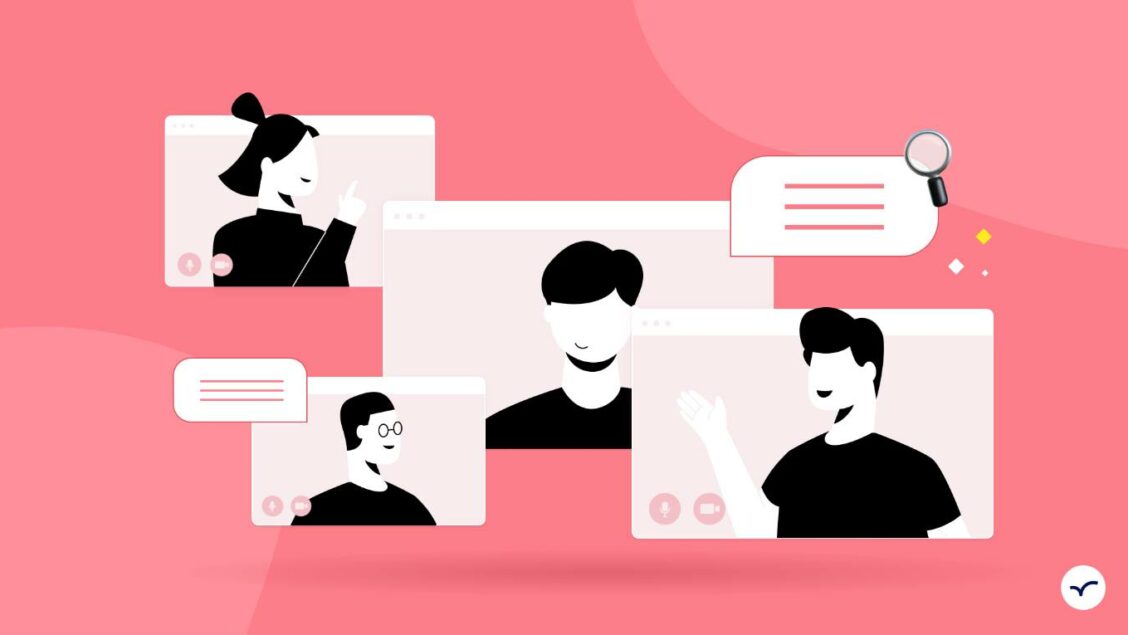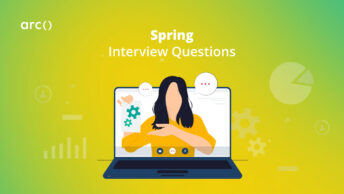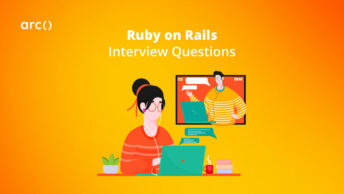A behavioral interview is one that focuses on your past experience. Hiring managers use the behavioral interview, along with a coding test or technical interview, to assess whether your past performance will help you succeed in this new role.
Behavioral interviews are just as important to a recruiter as your coding test. Most recruiters take the behavioral interview as an opportunity to learn more about your soft skills and to evaluate whether you’d be a good “culture fit” in the organization.
The more advanced you are in your career, the more weight your behavioral interview will carry. This is because, as a more senior leader, you’ll need to be able to manage others, meet deadlines, and collaborate with other teams.
To prepare for your next behavioral interview, we’ve compiled some of the top behavioral-based interview questions from companies like Automattic, Dropbox, Microsoft, and Buffer. Here are some sample behavioral interview questions and answers from leaders at remote tech companies.
1. Tell me about one of your favorite projects that you’ve worked on.
This question comes from Lynn Collette, Design Director at Automattic. She likes this question because you can learn a lot about how a person thinks. When Collette asks this behavioral interview question, she is listening to how you talk through your challenges, make choices, and work through a problem.
How to answer this behavioral question
Try using what’s known as the “STAR method” or the “STAR technique.” “STAR” stands for “Situation, Task, Action, Result.”
You’ll answer by describing the event or project (situation), explaining what you had to deliver (task), saying what steps you took to complete the project (action), and what the outcome was result).
The approach that the STAR method employs tells a story that’s short and compelling and will work for many of the behavioral interview questions on this list.
2. Tell me about a specific thing you did that positively impacted a program or project you worked on.
This question comes from Alastair Simpson, VP of Design at Dropbox. With this question, Simpson says he’s looking for humility. It’s a tricky question since you want to both show your leadership abilities and problem-solving skills and also credit others who helped you succeed.
How to answer this interview question
There’s research that shows that 25% of technology projects fail outright; 20 – 25% don’t show any return on investment; and as much as 50% need massive reworking by the time they’re finished. It may be that many of the projects you’ve worked on struggled along the way.
When you answer, make sure you show how you’ve learned from projects that failed and been able to take that learning with you to another project in a positive way.
Read More: 10+ Important LinkedIn Best Practices for Remote Software Engineers
3. Tell me about a person you’ve worked with who’s had a great impact on you.
Microsoft’s Courtny Cotten, Remote Design Team Lead, contributed this question during our Remote Career Success Stories interview. He likes this story because it allows you to speak to your ability to collaborate.
How to answer this important behavioral interview question
“Can they talk about others and how they were impacted by them? How were they influenced by somebody else? What are the skills they picked up? Because that’s what I want,” said Cotten.
“I want somebody that will be able to collaborate and see the good in each other. And we all have somebody that’s kind of lifted us up and believed in us when we didn’t a hundred percent believe in ourselves.”
Many people may be tempted to make this question all about themselves. Try to strike a balance between talking about someone who inspires you while still relating your answer back to your approach to the role for which you are interviewing.
4. Tell me what a productive day at work looks like to you.
Katie Wilde, VP of Engineering believes this question is a good way to kick off a behavioral interview. She uses this question to open the conversation and to encourage you to speak a little about yourself in a way that doesn’t feel interrogational. This question is her way of asking, “Tell me about yourself.”
Answering this interview question
While it is often an opening question used at interviews, be aware that you still need to answer in a way that’s relevant to the job. Speak to some of the tasks listed in the job description. If it’s a role where you’ll be writing code, for instance, talk about when is your ideal time of day to write productively.
Try to incorporate as many elements of the job description as you can to show you have the right experience. For remote jobs especially, it’s crucial to show you know how to stay productive, but it’s also just as important to show you know how to manage your time effectively.
Read More: How to Get Your Online Profile to Stand Out to IT Recruiters
5. What’s been the most challenging problem you have faced and how did you solve it?
Zapier’s Lisa Smith, Engineering Manager, wants to know how you’ve learned from past weaknesses. This question is one of the most common behavioral interview questions, though you may hear a variation such as, “Tell me about your weaknesses” or “Tell me about a time when you failed.”
How to answer this one
No one is perfect, and if you pretend to be, you’ll be giving a recruiter a reason to distrust your answer. Rather than give a non-answer — “I’m too organized” — make an effort to walk through a project that went wrong, what you learned in the process, and how you’ve overcome your shortcomings.
Recruiters are looking for candidates that are responsible, open to feedback, and can learn from their mistakes. Perhaps give a time when you struggled with cross-cultural communication on a remote team and how you handled it, for example.
6. Tell me about a time when you had a conflict with a coworker
GitLab’s Matt Nearents, Senior Product Designer, uses this question to learn more about a candidate’s ability to take feedback and work well with others. Managers have to be especially good at accepting input, resolving conflicts, and working with people.
It may be that you’ve never had a conflict with another coworker, but try to think of a time when you disagreed with client feedback or otherwise had to compromise your opinion with someone from the team.
How to answer this behavioral interview question
Use the STAR approach to talk about a time when you had a different opinion or received some tough feedback. Calmly explain your perspective and show how you worked to find a compromise. If you’re interviewing for a leadership role, try to pick an example where you helped others on your team work through a conflict and collaborate better.
Read More: How to Network: a Guide for Remote Software Developers & Engineers
7. Tell me about a time when you had to push back. What actions did you take?
Nadia Udalova, Head of Product Design at Moonpig, knows how important it is to find candidates who are comfortable in client-facing roles.
Even if you don’t expect to work with an external stakeholder, you may need to protect your team’s internal resources from others in the company looking for assistance.
How to reply with the right answer
You must be able to show that you can manage expectations, protect your team, and still meet client demands. Take the STAR technique to talk about a time when you had to balance the needs of your remote team with the needs of the company or client.
Focus on showing that you had great customer service and respected the needs of the stakeholder while protecting your direct reports from burning out.
8. Do you have hobbies?
Last but not least comes this question from Steph Smith, Head of Trends at The Hustle. It’s an important one that’s even more interesting for teams that are working purely remotely and don’t often have the opportunity to chat in the breakroom.
What the interviewer is looking for
Answer this question honestly!
This common interview question is one where the only wrong answer is no answer at all. The interviewer wants to get to know you better. Obviously, some answers are better than others (e.g., “watching Netflix” isn’t going to inspire anyone), but as long as you can talk passionately about something you do outside of work hours, you should be in good shape. For example, you could talk about how you continue learning in your spare time even with a busy schedule.
Behavioral interviews can be intimidating, but at the end of the day, recruiters are looking for authentic, honest answers. (Also, make sure you ask the interviewer questions of your own!)
If you can’t think of any specific situation or challenge in response to a behavioral question, say so and explain why. Humility, openness, and professionalism will go a lot further than trying to make something up to sound impressive.
For more advice, insight, and tips for finding a software development job, head back over to the Arc blog!
Read More: How to Write a Resume for Software Developer Jobs










